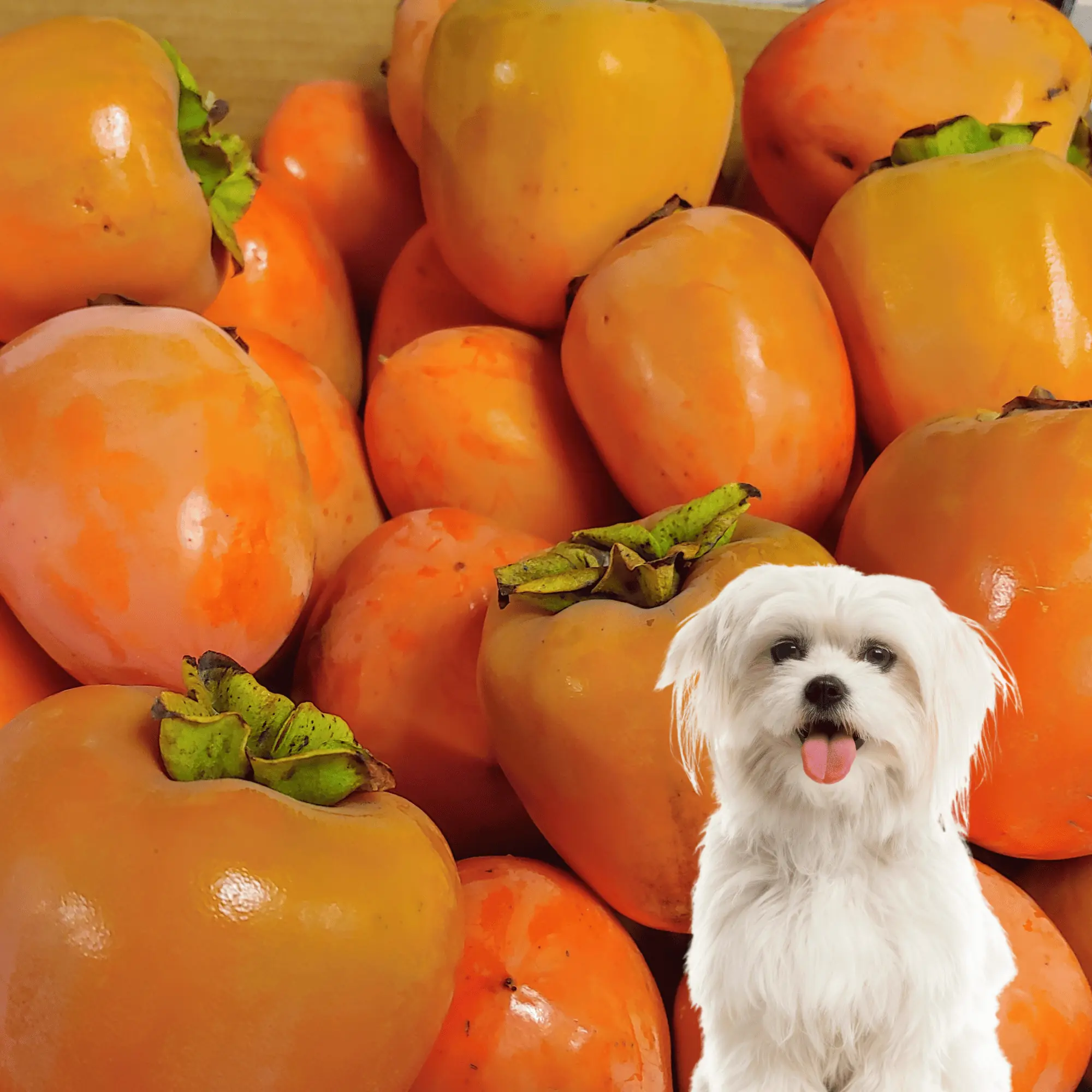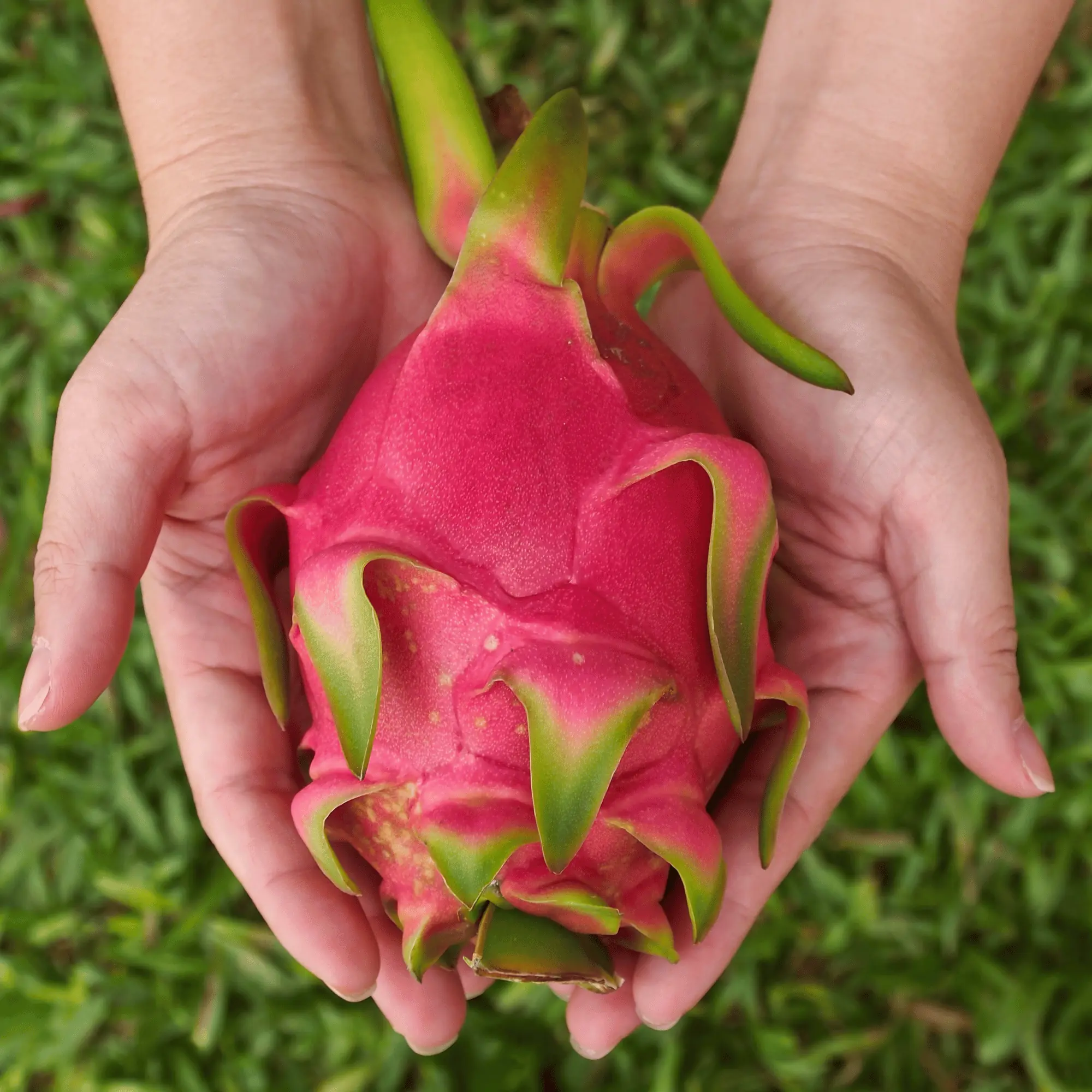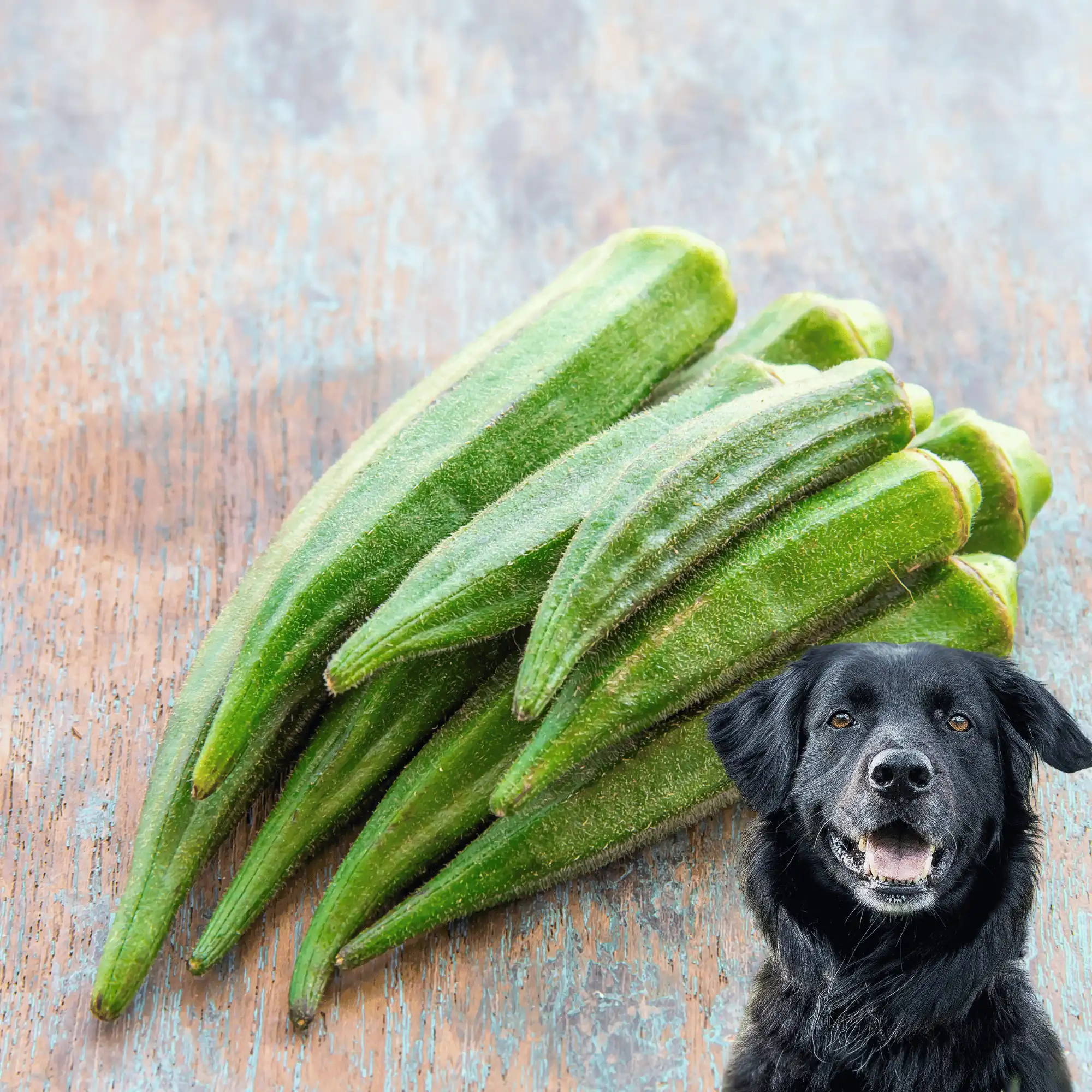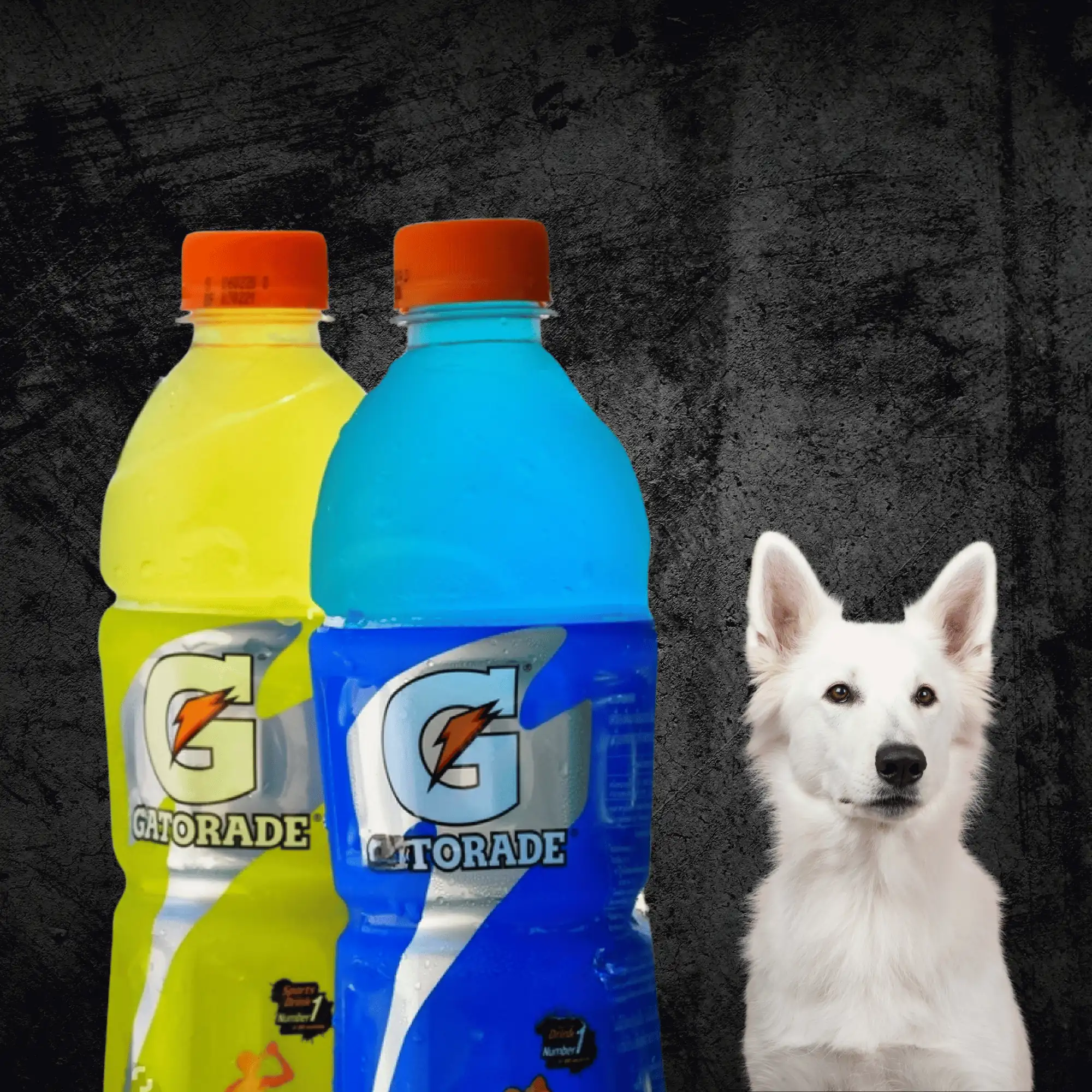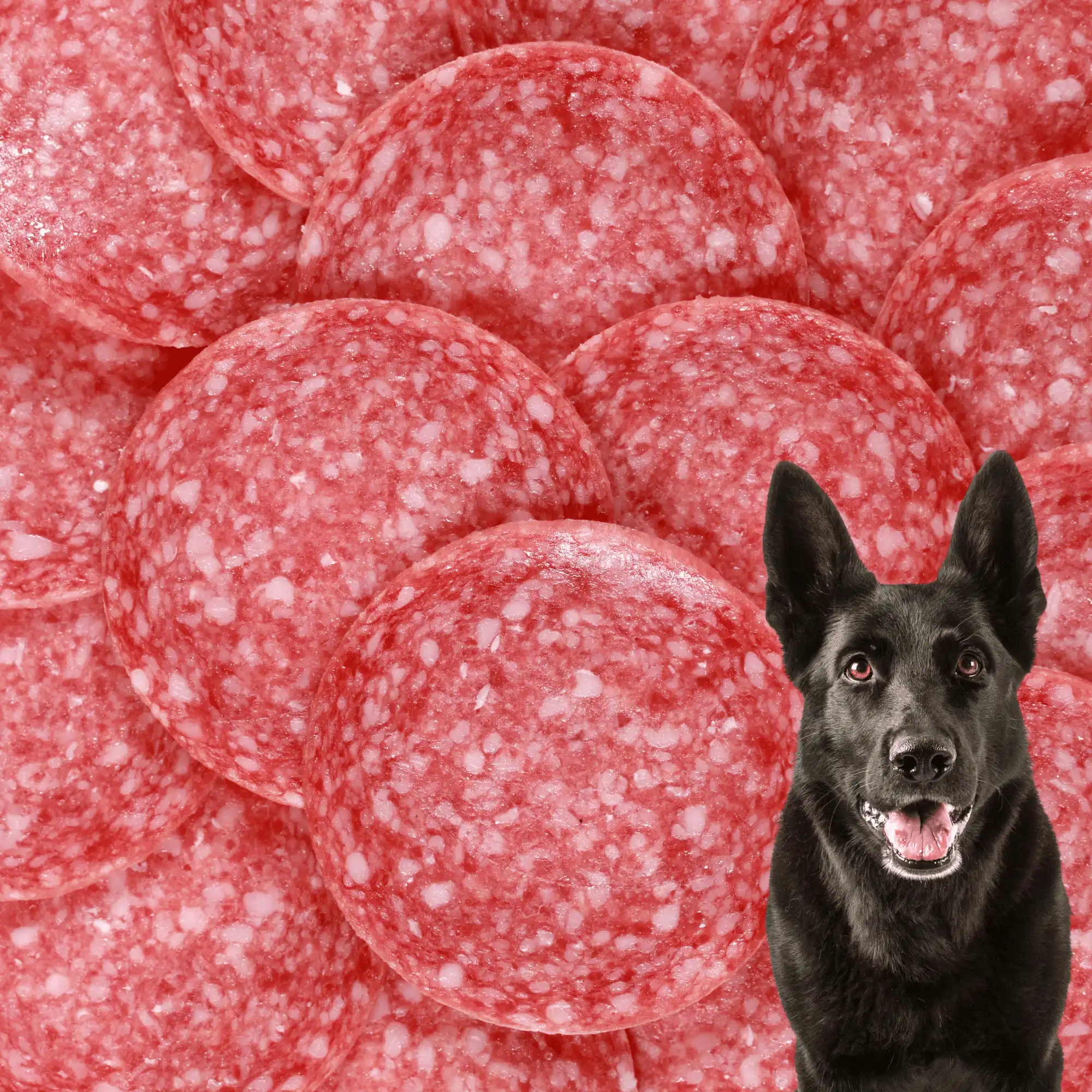Persimmons are delightful fruits enjoyed by many humans, especially in the autumn months when they ripen to a sweet and juicy perfection. Their vibrant orange hue and distinct flavor make them a seasonal favorite in pies, salads, and jams.
However, when it comes to our canine companions, caution is advised. While persimmons can offer nutritional benefits such as vitamins A and C, as well as fiber, they also contain compounds that, in certain quantities, may pose risks to dogs.
Understanding the potential dangers and benefits of feeding persimmons to dogs is crucial for ensuring their well-being and health. This article explores whether persimmons can be a safe treat or a dangerous snack for your furry friend.
Here are the topics we’re following in this article:
- What are Persimmons?
- Can Dogs Eat Persimmons?
- Are Persimmons Good for Dogs?
- Health Benefits of Persimmons for Dogs
- Potential Risks and Considerations
- Symptoms to Look for in Dogs
- How Can I Give Persimmon Fruit to My Dog?
What are Persimmons?
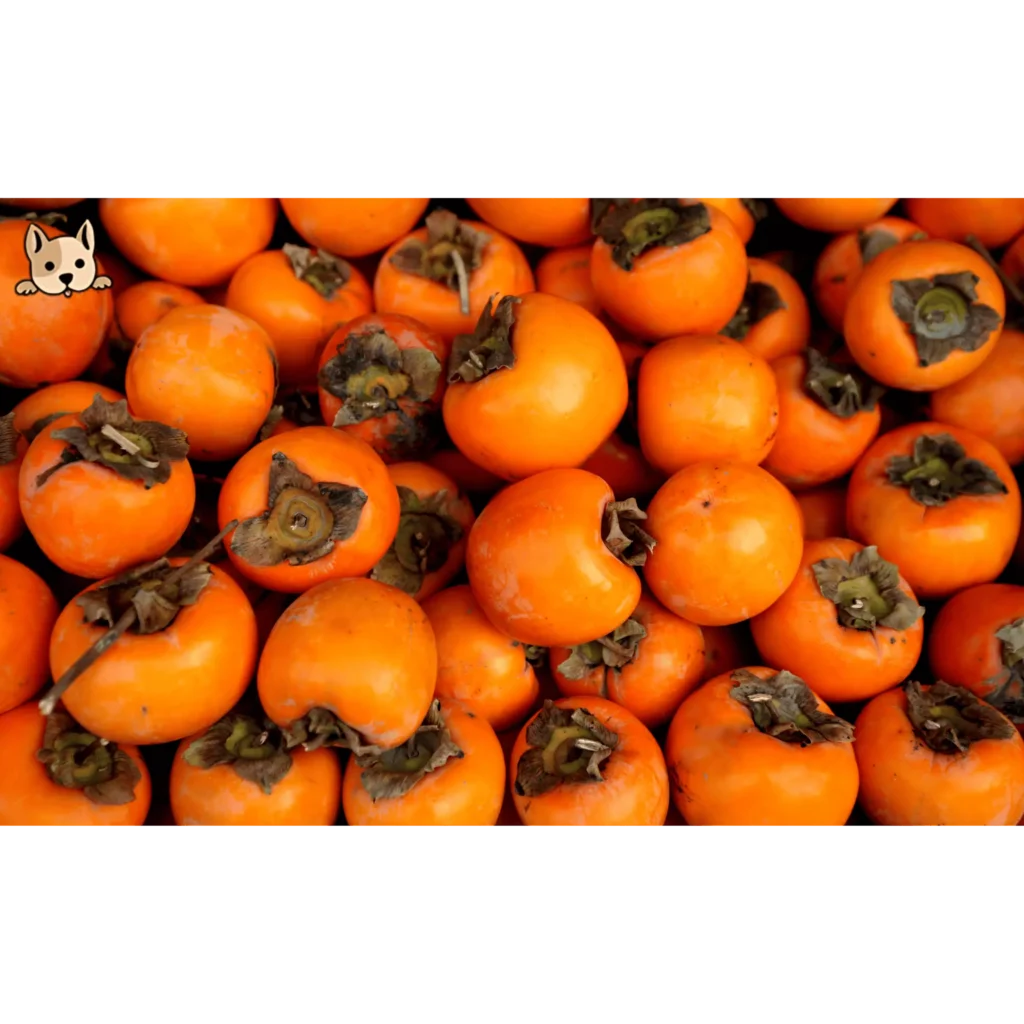
The persimmon is a tasty fruit that comes from several types of trees in the Diospyros genus. The most popular type is known as the kaki persimmon, scientifically named Diospyros kaki. These trees are also known for producing ebony timber. China grows about 75% of the world’s persimmons as of 2019.
Persimmons have shiny, tight skin that can be yellow or orange. Inside, the flesh can be soft and jam-like or more like a starchy texture, and sometimes they have seeds. Originally from China, persimmon trees were later grown in Japan and brought to North America and Southern Europe in the 1800s.
When ripe, persimmons have a unique taste that’s a mix of apricot, date, and sweet tomato flavors. They can be bitter at first because of their high tannin levels, but this bitterness goes away as the persimmon ripens or if you cook it.
Can Dogs Eat Persimmons?
Yes, dogs can safely enjoy persimmons as an occasional treat. It’s fine for them to eat the fruit’s flesh and skin, but avoid giving them the seeds, as these can cause digestive issues. Offer your dog only a few slices or a small amount each day, as too much persimmon can upset their stomach.
Are Persimmons Good for Dogs?
The persimmon fruit is quite unique. Resembling an orange tomato, it tastes like honey and is technically classified as a berry, albeit a large one compared to typical berries.
In terms of nutrients, persimmons provide vitamins C and A, which support immune system health and long-term eye health. These are essential for dogs, too.
However, it’s worth noting that dogs naturally produce vitamin C, so persimmons don’t offer the same nutritional impact as other exotic fruits like papaya or dragon fruit, which are richer in nutrients overall.
Health Benefits of Persimmons for Dogs:
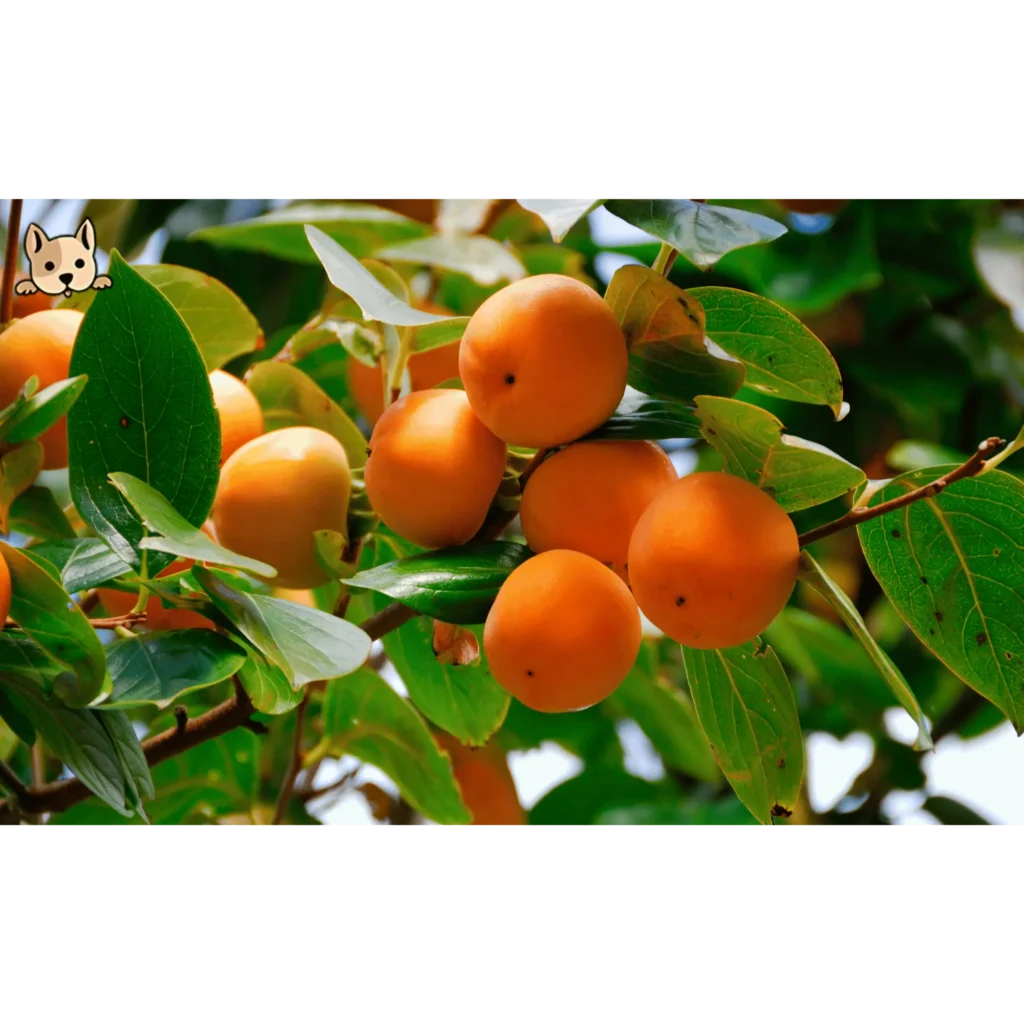
Persimmons can be a beneficial addition to a dog’s diet when given in moderation. Here are some potential health perks of feeding persimmons to dogs:
1. Rich in Vitamins and Minerals:
Persimmons contain essential vitamins such as A, C, and E. These vitamins play crucial roles in supporting a dog’s immune system, promoting healthy skin and coat, and contributing to overall well-being.
Vitamin A, for instance, supports vision and immune function, while vitamin C is an antioxidant that helps maintain healthy tissues.
2. Dietary Fiber:
Persimmons are a good source of dietary fiber, which is important for digestive health in dogs.
Fiber can aid in digestion by promoting regular bowel movements and supporting a healthy gastrointestinal tract.
3. Antioxidants:
Like many fruits, persimmons contain antioxidants such as beta-carotene and flavonoids.
These antioxidants help neutralize harmful free radicals in the body, which can reduce inflammation and contribute to overall cellular health.
4. Hydration:
Persimmons have a high water content, which can contribute to a dog’s hydration levels, especially when given as fresh fruit.
Proper hydration is essential for maintaining healthy organ function and overall vitality.
When introducing persimmons to your dog’s diet, it’s important to do so in moderation and ensure they are prepared properly. Remove any seeds or pits, as these can be harmful if ingested.
Potential Risks and Considerations:
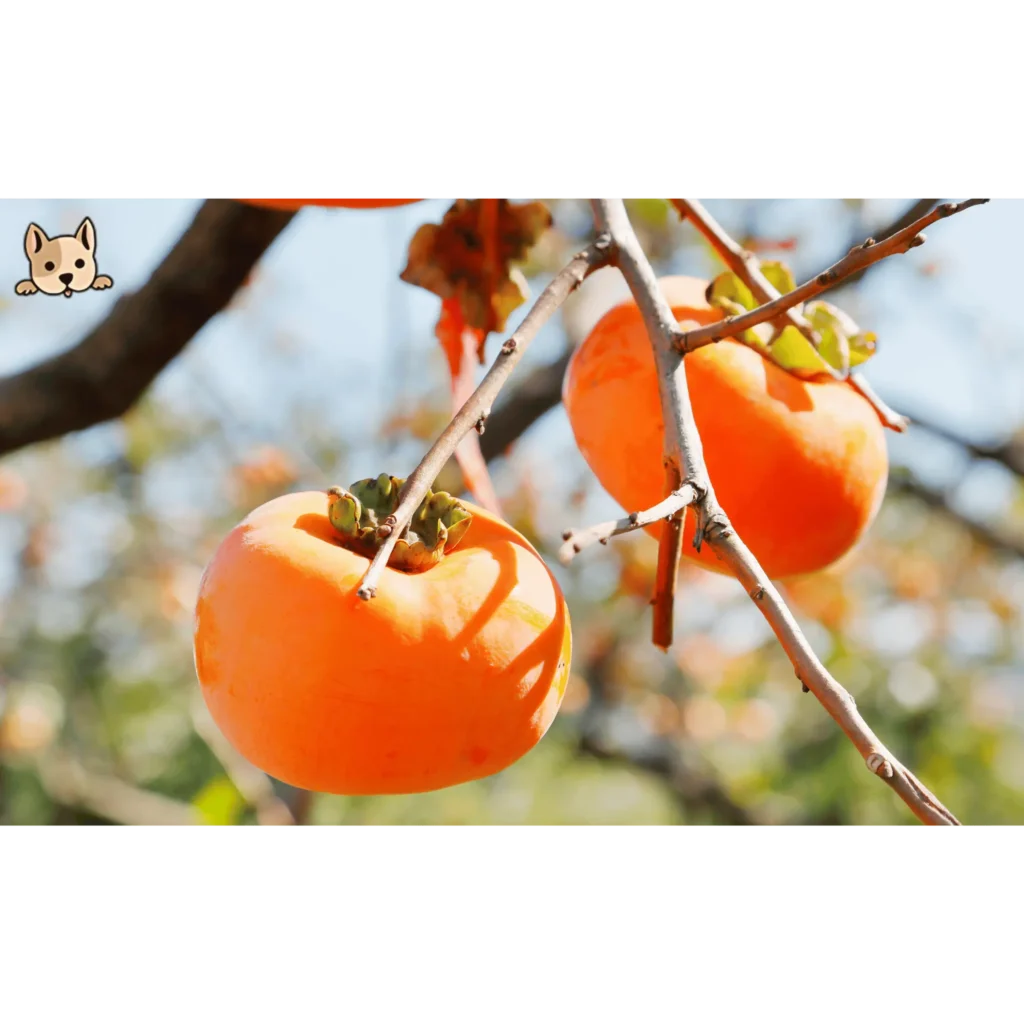
While persimmons can offer health advantages to dogs when given in moderation, there are also potential risks and considerations to be aware of:
1. Seeds and Pits:
Persimmon seeds and pits contain cyanogenic compounds, which can release cyanide when metabolized.
This can be toxic to dogs if ingested in large quantities. Always make sure to remove all seeds and pits before giving persimmons to your dog.
2. Allergies and Digestive Issues:
Some dogs may be allergic to persimmons or may experience digestive upsets such as diarrhea or vomiting when introduced to new foods.
Monitor your dog closely when introducing persimmons into their diet for the first time.
3. Blockages:
The fibrous nature of persimmons, especially if they are not fully ripe, can pose a risk of gastrointestinal blockage if large pieces are ingested.
Always cut persimmons into small, manageable pieces before offering them to your dog.
4. High Sugar Content:
Persimmons are relatively high in natural sugars, which can contribute to weight gain and dental issues if consumed excessively.
Moderation is key to avoiding overloading your dog with sugar.
While persimmons can be a nutritious addition to your dog’s diet when given in moderation and prepared properly, it’s essential to be aware of the potential risks associated with them.
Symptoms to Look for in Dogs:
If your dog has ingested the seeds or pit of a persimmon, it’s crucial to monitor for potential symptoms of toxicity or digestive issues. Here are some signs to observe:
- Vomiting
- Abdominal pain
- Loss of appetite
- Lethargy
- Dehydration
- Strained Bowel Movements
- Diarrhea
- Excessive Drooling
How Can I Prepare Persimmon Fruit for My Dog?
Preparing persimmons for your dog involves several steps to ensure they are safe and enjoyable for your pet. Begin by washing the fruit under cool, running water to remove any dirt or residues from the skin. This step helps prevent your dog from ingesting any unwanted substances.
Next, remove the stem and any leaves that may be attached to the fruit’s exterior. Cutting off these parts ensures that only the edible portion of the persimmon is offered to your dog.
Using a sharp knife, carefully cut the persimmon into bite-size pieces that are appropriate for your dog’s size and chewing ability. This step not only makes it easier for your pet to eat but also helps with portion control.
After cutting the persimmon into pieces, inspect each slice to ensure no seeds or pits are remaining. Persimmon seeds and pits contain compounds that can be harmful if ingested, so it’s crucial to remove them completely before feeding the fruit to your dog.
Once the Diospyros kaki pieces are seed-free, you can offer them to your dog in moderation.
While persimmons can provide health benefits such as vitamins and fiber, feeding too much can lead to digestive upset due to their natural sugars. Start by offering a small amount, and observe how your dog reacts. If your dog enjoys persimmons and shows no signs of allergic reactions or digestive issues, you can continue to offer them as an occasional treat.
Always monitor your dog closely when introducing new foods to their diet, and consult with your veterinarian if you have any concerns about feeding persimmons or any other fruits to your dog. This ensures that your pet receives a balanced and safe diet that supports their overall health and well-being.
Conclusion:
In conclusion, persimmons can be a safe and nutritious addition to your dog’s diet when offered in moderation and prepared correctly. While persimmons provide vitamins, minerals, fiber, and antioxidants that can benefit your dog’s health, it’s crucial to be mindful of potential risks such as the presence of seeds and high sugar content. Removing seeds and pits before feeding persimmons to your dog is essential to prevent digestive issues and toxicity.
Monitoring your dog for any signs of allergies or digestive upset when introducing Diospyros kaki is recommended. Symptoms like vomiting, diarrhea, and lethargy should be promptly addressed by consulting your veterinarian. By following these guidelines and feeding persimmons as an occasional treat, you can ensure your dog enjoys the nutritional benefits of this fruit while maintaining their overall well-being.
FAQs:
Is persimmon skin good for dogs?
No, dogs should not eat the seeds or skin of persimmons. Both the seeds and skin can cause blockages in the stomach or intestines, which can be very dangerous and even life-threatening for dogs. It’s important to always remove the seeds and peel the skin off before giving persimmons to your dog to keep them safe and healthy.
Who shouldn’t eat persimmons?
Eating Japanese persimmon in large amounts can potentially cause intestinal blockage. Allergic reactions from consuming the fruit are rare but can occur in some people. For pregnant and breastfeeding women, there isn’t enough information available about the safety of Japanese persimmon, so it’s recommended to avoid using it to err on the side of caution.
What happens if my dog eats persimmons?
Persimmons themselves are safe for dogs to eat. However, persimmons with seeds or pits can be harmful if swallowed. These parts can cause symptoms like vomiting, diarrhea, and abdominal pain, especially in serious cases. If you think your dog has eaten a persimmon with seeds or pits and shows signs of illness, it’s important to get veterinary help right away to avoid serious health issues.
Are any fruits poisonous to dogs?
Grapes, raisins, and currants are toxic to dogs, causing severe kidney damage even in small amounts. Avoid giving these fruits to your dog. Also, keep them away from avocados and the seeds, pits, or stones of fruits like apricots, peaches, and cherries, as these can cause digestive issues and other health problems. If your dog ingests any of these harmful fruits or parts, seek veterinary help immediately.






